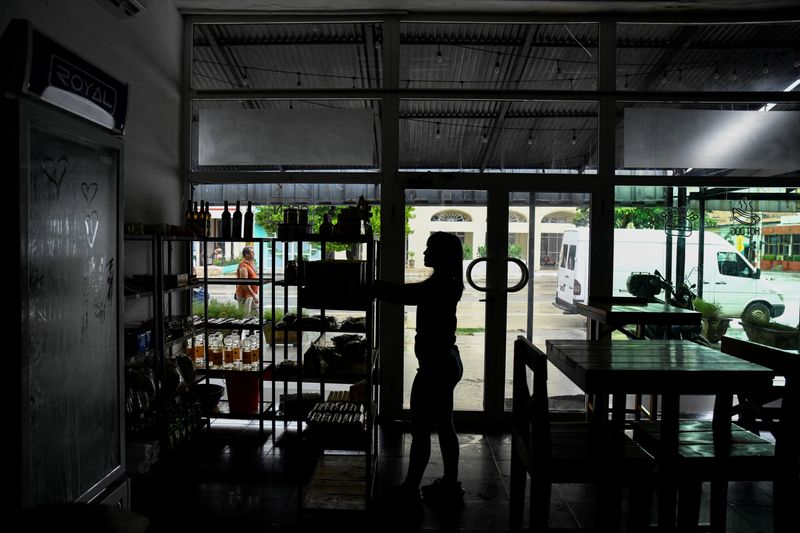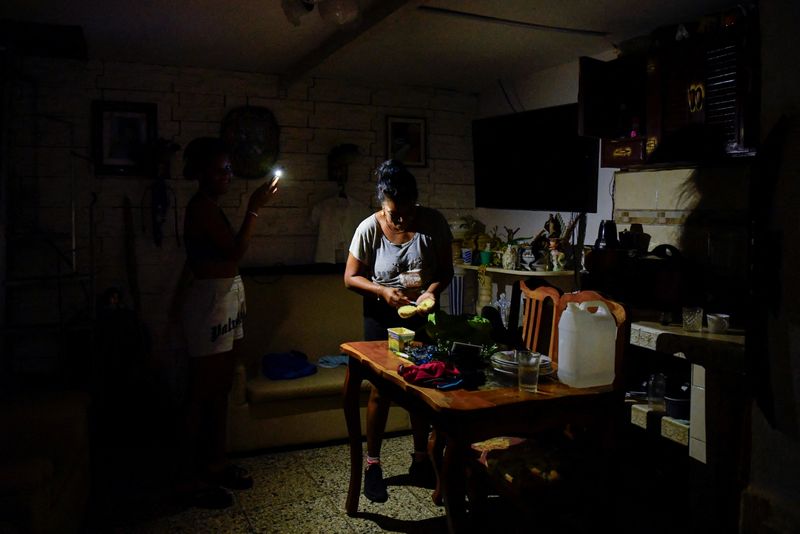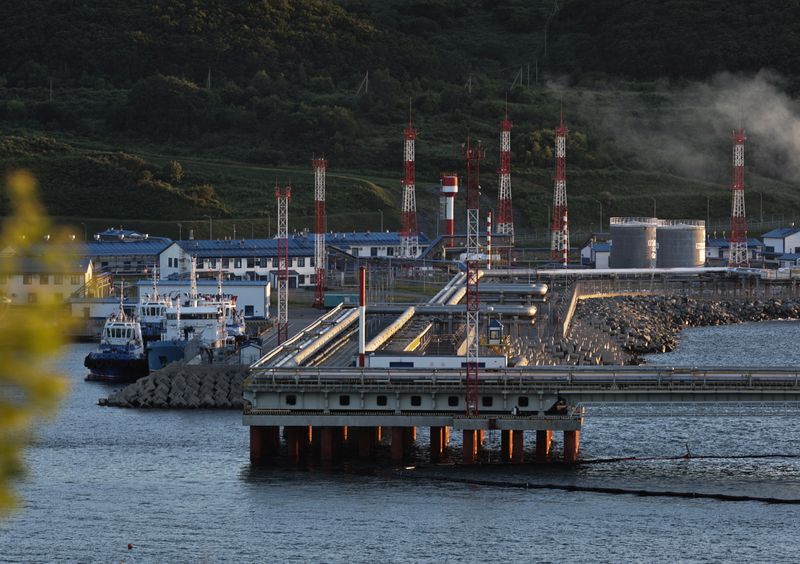
By Dave Sherwood and Marianna Parraga
HAVANA (Reuters) – Cuba plunged into a countrywide blackout on Friday after one of the island’s major power plants failed and caused the national electrical grid to shut down, its energy ministry said.
The Communist-run government had already closed schools and non-essential industry and sent most state workers home in a last-ditch effort to keep the lights on during severe power shortages.
But shortly before midday, the Antonio Guiteras power plant, the country’s largest and most efficient, went offline, prompting a total grid failure and leaving approximately 10 million people without power.
Officials did not say what had caused the plant to fail.
“There will be no rest until (power) is restored,” Cuban President Miguel Diaz-Canel said on X.
The blackout marks a new low point on an island where life has become increasingly unbearable, with residents already suffering from shortages of food, fuel, water and medicine.
The electricity shortages had already prompted officials to cancel all non-vital government services on Friday. Schools, including universities, were shuttered through Sunday. Recreational and cultural activities, including night clubs, were also ordered closed.
Officials said in mid-afternoon they had begun taking steps to restore power but that the process would take time.
Virtually all commerce in the capital Havana ground to a halt on Friday. Many residents sat sweating on doorsteps. Tourists hunkered down in frustration.
“We went to a restaurant and they had no food because there was no power, now we are also without internet,” said Brazilian tourist Carlos Roberto Julio, who had recently arrived in Havana. “In two days, we have already had several problems.”
Prime Minister Manuel Marrero late on Thursday blamed worsening blackouts during the past several weeks on a perfect storm well-known to most Cubans – deteriorating infrastructure, fuel shortages and rising demand.
“The fuel shortage is the biggest factor,” Marrero said in a televised message to the nation.
Strong winds that began with Hurricane Milton last week has crippled the island’s ability to deliver scarce fuel from boats offshore to its power plants, officials said.
Cuba’s government also blames the U.S. trade embargo, as well as new sanctions under former President Donald Trump, for difficulties in acquiring fuel and spare parts to operate its oil-fired plants.
“The complex scenario is caused primarily by the intensification of the economic war and financial and energy persecution of the United States,” Diaz-Canel said on X on Thursday.
“The United States is not to blame for today’s blackout on the island, or the overall energy situation in Cuba,” a spokesperson for the White House National Security Council said.
REDUCED FUEL
While demand for electricity has grown alongside Cuba’s private sector, fuel supply has evaporated.
Cuba’s largest oil supplier, Venezuela, has reduced shipments to the island to an average of 32,600 barrels per day in the first nine months of the year, about half of the 60,000 bpd sent in the same period of 2023, according to vessel-monitoring data and internal shipping documents from Venezuela’s state company PDVSA.
PDVSA, whose refining infrastructure is also ailing, has this year tried to avoid a new wave of fuel scarcity at home, leaving smaller volumes available for export to allied countries like Cuba.

Russia and Mexico, which in the past have sent fuel to Cuba, have also greatly reduced shipments to the island.
The shortfalls have left Cuba to fend for itself on the far costlier spot market at a time when its government is near-bankrupt.
This post is originally published on INVESTING.



